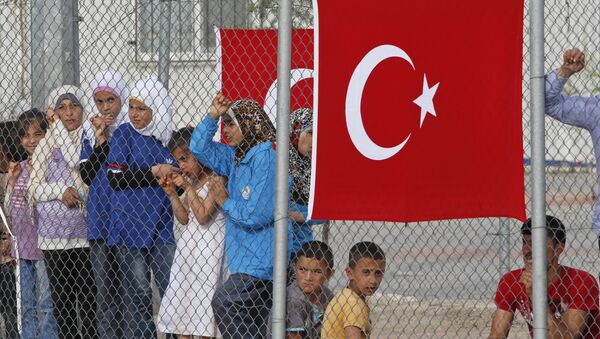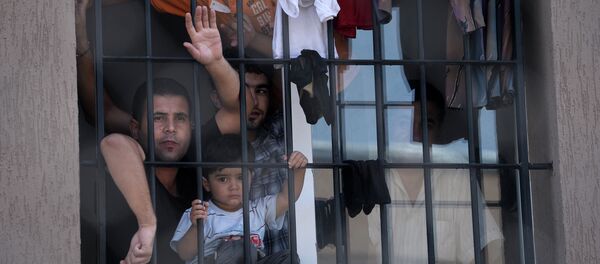An acceleration of Turkey's EU accession process was one part of the deal agreed in Brussels in March 2016 to stop the flow of migration via the Balkan route to Europe, which enabled more than a million refugees and migrants to travel to the EU in 2015.
According to the deal, the EU was supposed to grant Turkish citizens visa-free access to the EU by the end of July, and pay Turkey — initially — US$3.95 billion to bolster its refugee camps and accept "irregular" migrants denied asylum in Greece in return — on a one-for-one basis — for Syrian refugees in Turkey being relocated in the EU.
According to Kern, Turkey's "democratic standards are far from sufficient to justify its accession" into the EU.
"We have to face reality: the membership negotiations are currently no more than fiction. We know that Turkey's democratic standards are far from sufficient to justify its accession," Kern told reporters.
Gencehan Babis, an analyst in world affairs and security from Ankara's Institute of Strategic Research, told Sputnik Türkiye that the negotiations with the EU put Ankara in a difficult situation.
"It is clear that the EU doesn't want to take any more refugees, and looks upon Turkey as a repository for refugees. Brussels is trying to shift the whole burden onto Ankara, however Turkey can't cope with this burden and needs help from the EU."
Babis said that the refugee issue has "gradually become a bargaining chip between Turkey and the EU," and their negotiations on the issue have led to new obstacles.
"The EU is not going to carry out negotiations about a visa-free regime with a country that has millions of refugees. That's why the situation that Turkey is in has a very negative effect on its negotiating position with the EU about full EU membership or even liberalization of the visa regime."
"One way or another Brussels has to work with Ankara, but that doesn't put Turkey in a good position because it has to resolve the migrant issue in its own country. On the contrary, the agenda of negotiations between Turkey and the EU has become complicated with new, much more difficult problems, which further darken Ankara's already gloomy prospects for European integration."
"Any EU plan for the resettlement of refugees will involve the participation of Turkey. Any other alternatives without Turkey's participation are doomed to failure," he said.
"Even geographically, it's impossible. The only alternative would be Greece, but in view of its financial and economic position and the possible controversies, that is hardly possible," Babis said.




